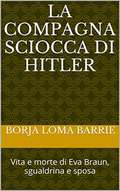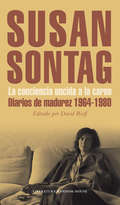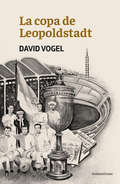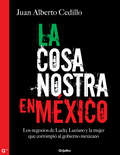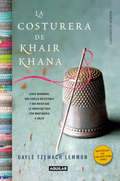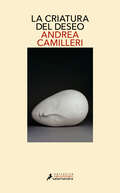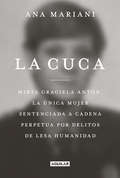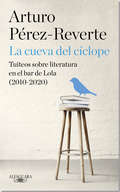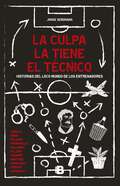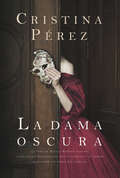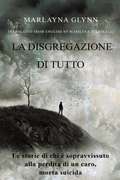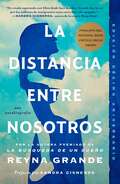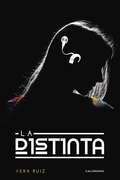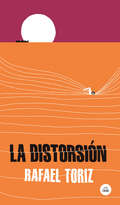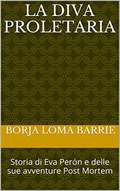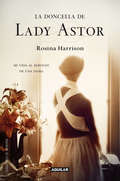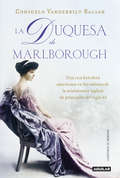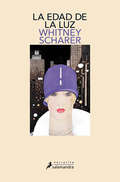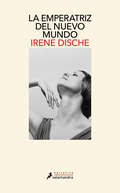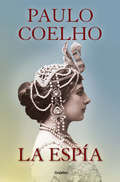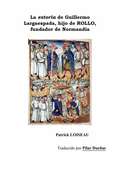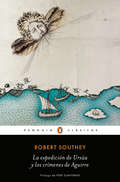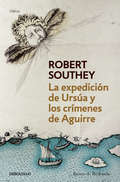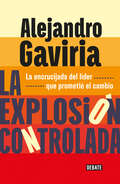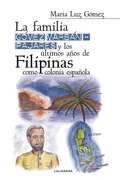- Table View
- List View
La compagna sciocca di Hitler. Vita e morte di Eva Braun, sgualdrina e sposa
by Corrado Pastore Borja Loma BarrieRomanzo storico. Biografia di Eva Braun, moglie di Adolf Hitler. Racconto di come si conobbero Hitler e Eva. La sessualità di Hitler. La vita quotidiana di Hitler. Hitler sconosciuto. La psicologia di Hitler.
La conciencia uncida a la carne: Diarios de madurez 1964-1980
by Susan SontagLa conciencia uncida a la carne es el segundo volumen de los diarios de Susan Sontag, que abarcan desde 1964 a 1980. El segundo de los tres volúmenes de los diarios de Susan Sontag arranca donde acaba Renacida: a mediados de los años sesenta. Estos diarios trazan y documentan la evolución de la autora de principiante en el mundo artístico e intelectual de Nueva York a influyente crítica mundialmente reconocida con la publicación de Contra la interpretación en 1966. La conciencia uncida a la carne sigue a Sontag durante los turbulentos años de la década de los sesenta -sus viajes a Hanoi en el punto álgido de la guerra de Vietnam y a Suecia para rodar largometrajes-, hasta los ochenta y el inicio de la era Reagan. Este libro es un registro de incalculable valor de los mecanismos internos, emocionales, espirituales e intelectuales de una de las pensadoras más incisivas y analíticas del siglo XX en pleno apogeo de sus facultades, además de una ventana al despertar político y moral del individuo.
La copa de Leopoldstadt
by David VogelUna novela que transita por territorios inciertos, donde las derrotas, las traiciones y la crueldad conviven con amistades inquebrantables, enamoramientos, búsquedas de libertades y luchas por recuperar la memoria que algunos pretendieron incinerar. ¿Cuántas historias se esconden en el cáliz de un trofeo? ¿Cuántos sentimientos quedan grabados detrás de su brillo? ¿Sería capaz ese objeto, ligado a glorias pasadas, de rebelarse contra el olvido y transportar su mensaje al futuro? Con la Segunda Guerra Mundial, su preludio y sus consecuencias como telón de fondo, La copa de Leopoldstadt propone un recorrido histórico que se ramifica en muchas vidas. Entre ellas, la del club Hakoah de Viena y las de algunos de sus seguidores más fieles. Las de familias de inmigrantes judíos que, aun a la distancia, conservan y transmiten sus pasiones. La del húngaro Bela Guttmann, leyenda del fútbol mundial, que sobrevivió a la persecución nazi, que repartió su trayectoria entre Europa y Estados Unidos, y que en su etapa como entrenador también llegó a América del Sur, con un pasaje por Peñarol.
La cosa nostra en México (1938-1950): Los negocios de Lucky Luciano y la mujer que corrompió al gobierno mexicano
by Juan Alberto CedilloEl mejor libro jamás escrito sobre la mafia siciliana desde sus orígenes hasta nuestros días que desvela las tramas ocultas y el funcionamiento de esta organización criminal. Una reveladora investigación histórica que documenta cómo se infiltró la mafia italiana en el gobierno mexicano, durante los años cuarenta. Un antecedente directo de los cárteles de la droga. En La Cosa Nostra en México, Juan Alberto Cedillo, autor del bestseller Los nazis en México, narra la historia de una camarera que se convirtió en la mujer más poderosa de la mafia y corrompió al gobierno mexicano: Virginia Hill. Esta hermosa e inteligente pelirroja comenzó a trabajar a los 17 años para aquella organización criminal, en 1933. Fue apostadora profesional, experta en lavado de dinero y mensajera de los capos. Conoció al poderoso gángster Benjamin Bugsy Siegel, con quien se casó. Ella lo ayudó a establecer las conexiones necesarias para traficar marihuana, opio yheroína desde México hacia los Estados Unidos. Tras el sangriento asesinato de Siegel en 1947, la plana mayor de la mafia, Lucky Luciano, Frank Costello y Meyer Lansky, la envió de nuevo a México con una misión: comprar funcionarios mexicanos del más alto nivel, con el propósito de establecer un casino en el puerto de Acapulco y asegurar su naciente industria de narcotráfico. Entre suntuosas fiestas a las que acudían importantes personajes del gobierno, hermosas mujeres y miembros de la mafia, numerosos servidores públicos fueron seducidos por el dinero y el lujo La Cosa Nostra en México es un espléndido retrato de época con revelaciones inéditas sobre los lazos entre el poder y la mafia, donde todos los hombres pueden ser comprados, con dólares o con mujeres.
La costurera de Khair Khana
by Gayle Tzemach LemmonCinco hermanas, una familia respetable y una mujer que lo arriesgó todo por mantenerlas a salvo. La vida de Kamila Sidiqi cambia de la noche a la mañana cuando los talibanes toman el poder en Kabul. A pesar de haber conseguido una diplomatura en Educación durante la guerra Kamila es despojada de este grado superior, destituida de la escuela donde enseña y relegada a su hogar. Por desgracia su padre y su hermano deben huir de la ciudad y Kamila se enfrenta sola a la supervivencia de la familia, pues tiene que hacerse cargo de sus hermanos menores. Armada sólo de valor y de una férrea determinación, utilizará la aguja y el hilo para crear una floreciente empresa sin la ayuda de nadie. La costurera de Khair Khana reconstruye la historia de una mujer que gracias a la fuerza y al amor por su familia logró crear de la nada un negocio de éxito bajo los férreos preceptos del régimen talibán. La ex reportera de ABC News Gayle Tzemach Lemmon ha seguido a Kamila durante años y el resultado es un retrato íntimo y real del día a día de las mujeres en Afganistán. Una historia conmovedora e inspiracional que no es sólo la valentía empresarial de una mujer, sino que pone de manifiesto el poder de las mujeres por mantener unidas a sus familias a pesar de la guerra, del poder político y del miedo. Reseñas:«Contra todo pronóstico, estas mujeres crearon esperanza y comunidad y no abandonaron el proyecto. Te garantizo que este libro no te dejará indiferente y te mostrará una parte de Afganistán que muy pocos ven.»Angelina Jolie «Una historia inspiracional que muestra el coraje en la construcción de un proyecto para la comunidad. Resultado de varios años de investigación, seguimiento periodístico y de conmovedoras entrevistas... la pluma de Lemmon presta especial atención a los detalles y recrea de manera magistral la ambientación de Kabul en la era de los talibanes.»Kirkus Reviews «Éste es uno de los libros más inspiradores que he leído. La inolvidable historia de Kamila Sidiqi nos muestra hasta dónde estamos dispuestos a llegar por aquellos a quienes amamos.»Greg Mortenson, autor de Tres tazas de té «Escrito con gracia, pasión y elegancia, el fascinante retrato que Gayle Lemmon hace de Kamila refleja el extraordinario tesón y la ingenuidad de una mujer que consiguió triunfar a escondidas del régimen talibán por la supervivencia de su familia. Una lectura imprescindible que nos recuerda que Afganistán nunca podrá prosperar hasta que comprenda el papel de las mujeres -su ingenio, su espíritu, su resiliencia en los negocios y en el futuro»Tina Brown «La costurera de Khair Khana se lee como una gran obra de ficción cuando todo lo que se cuenta en ella es real. Este libro te enganchará desde la primera frase y te llevará de la mano en un viaje apasionante que traspasa varios límites:el cultural, el geográfico, el intelectual y, por encima de todos, el emocional. Tienes que leerla.»Mohamed El-Erian, autor de When Markets Collide
La criatura del deseo
by Andrea CamilleriBasándose en personajes y hechos reales, Andrea Camilleri reconstruyela tormentosa relación entre Alma Mahler y Oskar Kokoschka En 1912, un año después de la muerte de Gustav Mahler, Alma, su joven viuda conoció al pintor Oskar Kokoschka. Así comienza su historia de amor, que pronto desembocará en una pasión tan desenfrenada como tumultuosa. Pero cuando Alma rompe brutalmente la relación, Kokoschka, con el corazón destrozado, decide partir al frente. A su regreso, traumatizado por el conflicto y obsesionado aún con el amor perdido, encarga una muñeca de tamaño natural con los rasgos de su amada. A partir de escritos biográficos, cartas y otros materiales inéditos, Andrea Camilleri reconstruye no solo la sobrecogedora historia de una desenfrenada pasión amorosa, en la que pugnan el genio artístico y la enfermedad mental, sino también una época crucial para el destino de Europa. La crítica ha dicho... «Por su capacidad para ahondar en un mundo que ya había visitado tanto y descubrir cosas nuevas, las novelas criminales o novelas negras de Camilleri ajenas al universo de Montalbano son su derivada más interesante.» El País«A partir de escritos biográficos, cartas y otros materiales inéditos, el siciliano ofrece una historia de pasión desenfrenada.» El Debate «Una historia asombrosa y verídica. Una crónica perversa en la que Kokoschka ejecuta con furia la matanza simbólica de una mujer rebelde. Un mundo de proyecciones y mitos. El sueño de Pigmalión. Doctor Coppelius y Coppelia, su codiciado maniquí. Los fetiches eróticos de los cuerpos hinchables.» La Repubblica
La cuca: Mirta Graciela Antón, la única mujer sentenciada a cadena perpetua por delitos de lesa humanidad
by Ana MarianiHistoria maldita de la única mujer condenada a prisión perpetua en América Latina por secuestros, torturas, homicidios y abusos durante la última dictadura. Policía; hija, esposa, hermana, madre y tía de policías, Mirta Graciela Antón -la Cuca- es la única mujer en América Latina sentenciada a cadena perpetua por numerosos hechos de privación ilegítima de la libertad, tormentos, homicidios, desapariciones forzadas y abusos deshonestos en un juicio por delitos de lesa humanidad. Comenzó a cometerlos cuando tenía veinte años y cumplía funciones en el Departamento de Informaciones de la Policía de Córdoba, el siniestro D2. Durante las audiencias judiciales, su imagen siempre se destacó: única mujer rodeada de hombres, impecable y elegante, que ríe irónica ante víctimas y testigos, oculta su rostro o gesticula ante las cámaras. En la primavera de 2016, la periodista Ana Mariani se reunió varias veces con Antón. En la cárcel, habló de su vida y sugirió con insistencia que los crímenes de los cuales se la acusaba habían sido cometidos por su exmarido, el fallecido represor Raúl Buceta. "Me declaro total y absolutamente inocente de todo", sostuvo. Los testimonios de sus víctimas dicen lo contrario, y la elocuencia de los silencios de la Cuca parece darles la razón. Ana Mariani reúne en este libro esas voces y esos silencios.
La cueva del cíclope: Tuiteos sobre literatura en el bar de Lola (2010-2020)
by Arturo Pérez-ReverteDiez años de conversaciones sobre literatura en el bar de Lola. «Hablar de libros en Twitter es como hacerlo con los amigos en la barra de un bar -dice Arturo Pérez-Reverte-. Si conversar sobre libros siempre es un acto de felicidad, que una red social sirva para esto la hace especialmente valiosa. Ahí vuelco con naturalidad toda una vida de lectura, y ahí comparto, con la misma naturalidad, la vida de lectura de mis lectores. Y el lector es un amigo.» Arturo Pérez-Reverte cumple diez años en Twitter. Son muchos los temas de los que ha hablado en esta red en este período, pero los libros ocupan un lugar protagónico. Entre febrero de 2010 y marzo de 2020, ha escrito más 45.000 mensajes, muchos de ellos sobre literatura, tanto la suya propia como aquella que estaba leyendo o la que le ha marcado a través de los años como escritor. Estos mensajes conforman los encuentros virtuales con sus seguidores en el mítico bar de Lola y se suceden periódicamente desde ese lejano día en que se adentró en esta «cueva del cíclope», como él mismo dio en llamar a la red social. Entre los muchos aspectos relacionados con la literatura, los tuiteros le han preguntado por su próxima novela o por su proceso de escritura, y le han pedido recomendaciones de lectura. Este libro reúne, gracias a la labor compiladora de Rogorn Moradan, todas estas conversaciones directas y sin intermediarios que ha mantenido Arturo Pérez-Reverte con sus lectores. Frente al carácter inmediato y efímero de los comentarios en esta red, hay algunas cuentas que, como dice Rogorn, «contienen pepitas de oro que merece la pena preservar». La de Arturo Pérez-Reverte es una de ellas. Anímense a entrar y tómense algo. Lola abre el bar durante un buen rato esta vez. Clic.
La culpa la tiene el técnico: Historias del loco mundo de los entrenadores
by Jorge SeñoransEste libro nos relata historias locas y profundamente humanas, historias increíbles. Un entrenador que en plena asamblea de la gremial fue hasta su vehículo a buscar una cuchilla choricera para pelear con Juan Ramón Carrasco. Otro que, para cortar una mala racha, hizo subir al 9 de su equipo a un ómnibus con una planta en la cabeza y tiempo después, mandó pintar las paredes y las bombitas del vestuario visitante de negro para que fuera «un ataúd». El que todas las mañanas de invierno se lanzaba en la piscina de agua helada de su casa y llegó a encerrar a sus jugadores en un sótano con tarántulas. La desaparición de Luis Cubilla en pleno partido por temor a una guerra civil, el torneo que se jugó sin entrenadores y las andanzas de Mario Patrón, que se ponía un lápiz detrás de la oreja y diseñaba los partidos con dibujitos en una hoja. Un libro que habla del loco mundo de los entrenadores. Una obra que reúne a personajes como Gerardo Pelusso, que se disfrazó de rockero para reunirse con los dirigentes de un equipo; Luis Garisto, que en Argentina iba a entrenar en subte y cuando venía a Uruguay le gustaba hacer el recorrido del transporte público porque decía que «el olor del ómnibus de CUTCSA es único». Cabuleros como Hugo Bagnulo, que se ponía piedras en la boca y mandaba a sus dirigidos al baño. Sobrios y sin pelos en la lengua, como Hugo de León, que fue declarado persona no grata en Bolivia y se peleó con el argentino Daniel Passarella. Y luchadoras como Leticia Rodríguez, la mujer pionera en dirigir a un plantel de hombres.
La dama oscura: La vida de Æmilia Bassano Lanyer, la mujer que Shakespeare amó en secreto y lo inspiró a escribir sus obras más famosas
by Cristina PerezLa vida de Æmilia Bassano, la mujer a la que Shakespeare amó en secreto, lo inspiró para escribir sus obras más famosas y que vivió limitada por las restricciones que el renacimiento inglés imponía pero que ahora sí puede ser puesta en primer plano y dada a conocer en todo su esplendor. En pleno siglo XVI, las mujeres casi no tenían derechos en Inglaterra. No sabían leer ni escribir. Æmilia Bassano Lanyer, nacida en una familia de músicos y con formación de princesa, iba a enfrentar un mundo donde hasta la reina Elizabeth I pagaba el precio de ser mujer. Æmilia llegó a la corte como intérprete musical y compositora, pero también como amante de uno de los hombres más poderosos del reino. Fue la primera mujer en publicar un libro en la literatura inglesa y eso la uniría con un poeta y dramaturgo que empezaba a descollar: William Shakespeare. Subyugado por la misteriosa belleza e intelectualidad de Æmilia, él dejaría en sus sonetos registro de ese amor. Allí la menciona crípticamente como "la dama oscura" y hay investigaciones que aseguran que fue coautora de algunas de sus obras e inspiración de historias de origen italiano como Romeo y Julieta. En esta novela, Cristina Pérez busca unir los puntos históricos de un amor que inventó el amor, y recrea un lenguaje y una atmósfera de época con ritmo contemporáneo. Una rigurosa investigación es el telón de fondo para desentrañar quién fue Æmilia Bassano Lanyer, una mujer encorsetada por los límites del renacimiento inglés que, sin embargo, estuvo por delante de su tiempo como pionera de la mujer moderna y libre.
La disgregazione di tutto. Le storie di chi è sopravvissuto alla perdita di un caro, morto suicida
by Marilena Petrocelli Marlayna GlynnQuesta raccolta di storie vere vi invita ad osservare da vicino il processo di comprensione delle implicazioni che derivano dal suicidio degli altri e di come questo colpisce le persone care. Cosa succede a chi rimane in vita quando qualcuno si suicida? Come affrontano il processo di lutto i sopravvissuti? Che metodo seguono? Si riprendono mai da un trauma tanto profondo? Queste domande trovano risposta all’interno delle memorie scritte dalle 26 persone che hanno contribuito a questo lavoro. Probabilmente la più grande paura di chi è rimasto è di non essere stati abbastanza. Si può pensare di non aver fatto abbastanza, o detto abbastanza, o notato abbastanza o di non essere stati abbastanza. Ma non si commette un suicidio perché qualcuno non è abbastanza. Ci sono molti altri motivi, ma non essere stati abbastanza non è tra quelli. Al momento di questa stampa, le statistiche per l’anno 2010 (l’anno più recente per cui sono disponibili i dati) contano 38.364 suicidi segnalati, portando il suicidio al decimo posto per quanto riguarda le cause di morte degli americani secondo l’American Foundation For Suicide Prevention. Il numero di suicidi annuali negli Stati Uniti è il doppio rispetto a quello degli omicidi. Per ogni suicidio, ci sono circa sei sopravvissuti. Il che significa che solo nel 2010 negli Stati Uniti le persone che hanno perso un proprio caro per via del suicidio sono state circa 230.184. Secondo il Center for Disease Control and Prevention, nel 2010 negli Stati Uniti c’è stato un morto suicida ogni 13,7 minuti. L’Organizzazione Mondiale della Sanità riporta che ogni anno ci sono più di 800.000 persone morte suicide in tutto il mondo, per una media di un morto suicida ogni 40 secondi. Un morto ogni 40 secondi. Questo significa che nel frattempo che voi avete iniziato a leggere e siete arrivati a questo punto, qualcuno che prima era in vita adesso non lo è più.
La distancia entre nosotros (Atria Espanol)
by Reyna GrandeFrom the award-winning author of Across a Hundred Mountains.Cuando el padre de Reyna Grande deja a su esposa y sus tres hijos atrás en un pueblo de México para hacer el peligroso viaje a través de la frontera a los Estados Unidos, promete que pronto regresará con el dinero suficiente para construir la casa de sus sueños. Sus promesas se vuelven más difíciles de creer cuando los meses de espera se convierten en años. Cuando se lleva a su esposa para reunirse con él, Reyna y sus hermanos son depositados en el hogar ya sobrecargado de su abuela paterna, Evila, una mujer endurecida por la vida. Los tres hermanos se ven obligados a cuidar de sí mismos. En los juegos infantiles encuentran una manera de olvidar el dolor del abandono y a resolver problemas de adultos. Cuando su madre regresa, la reunión sienta las bases para un capítulo nuevo y dramático en la vida de Reyna: su propio viaje a El otro lado para vivir con el hombre que ha poseído su imaginación durante años— su padre ausente. En esta memoria extraordinaria, la galardonada escritora Reyna Grande le da vida a sus años tumultuosos, capturando la confusión y las contradicciones de una infancia divida entre dos padres y dos países. Sólo en los libros, en la música y en su rica imaginación ella encontrará consuelo, un refugio momentáneo de un mundo en el que cada lugar se siente como El otro lado. La distancia entre nosotros capta el paso de una niña de la infancia a la adolescencia y más allá. Una divertida, lírica, pero desgarradora historia, nos recuerda que las alegrías y las tristezas de la infancia están siempre con nosotros, impresas en el corazón, recordándonos de ese lugar que fue nuestro primer hogar.
La distinta
by Vera RuizTodo es silencio... Adéntrate en la historia de una joven sorda. Una novela sobre discapacidad como Yo antes de ti. <P><P>Julia, una niña normal, ve su vida transformarse cuando una enfermedad le deja la secuela de sordera. Sumida en un mundo de silencio, lucha por adaptarse a una sociedad oyente, que no comprende su condición especial. Las crisis, la soledad y su ansia de volver a escuchar la acompañan a lo largo de su niñez y adolescencia. <P><P>En su juventud, una operación de implante coclear la llena de esperanza, al devolverle en alguna forma la audición. Sin embargo, su lucha contra los estigmas, los obstáculos y la discriminación, continúa. <P><P>La tenacidad de la joven la impulsa a seguir adelante, motivada por la calidez de las relaciones filiales, la amistad, y, también, el complicado amor.
La distorsión
by Rafael Toriz¿Dónde está la frontera entre ficción y autobiografía, entre realidad e interpretación o conveniencia? La crítica literaria tiene el término un tanto ostentoso de bildungsroman para referirse a aquellas novelas que relatan el crecimiento moral o psicológico de un personaje, su paso, muchas veces doloroso, de la juventud a la madurez. Novelas de formación o aprendizaje, también se llaman. Este libro podría ubicarse bajo esa categoría, de no ser porque no es una novela, o no del todo. Es acaso un ensayo de formación. O un diario escrito a destiempo. Cuenta, ciertamente, la historia de crecimiento de un personaje, sus diversos ritos de iniciación -el amor, el sexo, el miedo, los viajes, la escritura, los excesos-, su continua expulsión del Paraíso. Pero esta historia de crecimiento también lo es de sus antepasados -pues el pasado siempre está en constante expansión-, y además es el relato del anhelo de un contexto. Este libro es el bestiario de una memoria. O la cartografía de un olvido. Otro término popular de la crítica literaria contemporánea es el de autoficción. Este libro podría adjudicarse esa etiqueta de no ser porque uno de sus propósitos es, justamente, combatirla. La literatura siempre se ha ocupado del yo, de esa zona del mundo tan diminuta y tan absoluta, sin necesitar de etiquetas de moda. Este libro -cuaderno vivo, con pulso y extremidades- así lo reconoce. También reconoce que ver el mundo distorsiona el mundo. No se diga vivir en él; mucho menos, narrarlo.
La diva proletaria. Storia di Eva Perón e delle sue avventure Post Mortem
by Corrado Pastore Borja Loma BarrieRomanzo storico. Vita di Eva Perón. Sequestro e omicidio del generale Aramburu per mano dei montoneros. L'entusiasmo per Evita. Rivoluzione Peronista. Juan D. Perón. Le "cabecitas negras". L'odio dei paquetes argentini (i ricchi) nei confronti dei grasas (i poveri) e del Peronismo. Colpi di Stato in Argentina.
La doncella de Lady Astor: Mi vida al servicio de una dama
by Rosina HarrisonLas memorias de la doncella de una de las grandes aristócratas europeas, mujer avanzada en su tiempo por ser la primera parlamentaria. «Además de mis experiencias en el servicio doméstico, este libro trata de mucha gente, y especialmente de una persona, Lady Nancy Astor. Se ha escrito bastante sobre la vida política y personal de mi señora. Algunos la alababan y otros han sido brutalmente críticos. Con mi narración pretendo ofrecer la visión que sus sirvientes tenían de ella, no la opinión de colegas y amistades de su clase. Mi vida con la señora fue un constante desafío y un conflicto continuado que disfrutamos inmensamente a pesar de hacernos daño la una a la otra de vez en cuando. Aunque nos separaban la posición y el dinero, teníamos caracteres parecidos y creo poder decir que siempre hubo un respeto mutuo.»Rosina Harrison Reseñas:«Ninguna serie de televisión podría llegar a desarrollar una historia semejante, llena de conflictos, odio y amor, como la relación de Rose y su señora.»Evening Standard «Fascinante, franca, respetuosa, amable pero punzante: un documento valiosísimo sobre la relación entre señora y doncella, opuestas en estatus pero iguales en temperamento.»Sunday Telegraph
La duquesa de Marlborough: Una rica heredera americana en los salones de la aristocracia inglesa de princip
by Consuelo Vanderbilt BalsanEl testimonio de la novena duquesa de Malborough se convierte en la crónica personal de la riqueza y los usos amorosos de una época de esplendor de la nobleza británica y una perfecta recreación de la vida de la vida en la era Eduardiana. Descubre las memorias de Consuelo Vanderbilt, la mujer que podría haber inspirado a lady Grantham en Downton Abbey. Consuelo Vanderbilt es joven, guapa y se ha convertido por derecho en la heredera de una vasta fortuna. También está enamorada de un americano que la pretende pero su madre tiene otros planes para ella. Ha concertado un matrimonio con uno de los nobles más destacados de la aristocracia inglesa: el duque de Marlborough. En 1895 la joven Vanderbilt parte hacia Inglaterra como duquesa de Marlborough y se instala en el que será su nuevo hogar: Blenheim Palace. Consuelo se convierte en testigo de excepción de una sociedad cargada de luces y sombras, y la agudeza y laperspicacia de su mirada transforman cada una de sus palabras manuscritas en la crónica personal de la riqueza y los usos amorosos de una época de esplendor de la nobleza británica, y son una recreación perfecta de la vida en la era Eduardiana y un retrato fidelísimo de la personalidad de algunos de los nombres célebres de la época, como la reina Victoria, Eduardo VII, el zar Nicolás o el joven Winston Churchill. El relato fascinante de una época, de los de arriba y de los de abajo y de los secretos de la aristocracia británica de entonces. Cuadernos de Memoria es la colección de memoirs de Aguilar. Testimonios de vida, historias de superación o realidades en primera persona que mueven al lector y lo transforman. Historias reales que se leen como una novela. La crítica y los lectores han dicho:«Consuelo Vanderbilt fue una pobre niña rica muy peculiar. Un maravilloso retrato del glamour y la magnificencia de una época dorada y un ejemplo de cómo el dinero no puede comprar el amor»Daisy Goodwin, autora de The American Heiress «Un gran libro. Una lectura amena y reveladora acerca de un periodo de tiempo y de una familia muy influyente entonces». «Una obra magnífica que abarca los siglos XIX y XX. Consuelo Vanderbilt tuvo una vida increíble. Definitivamente el libro que te gustaría tener cerca en una isla desierta». «Un clásico genuino».
La edad de la luz
by Whitney ScharerUna novela íntima y vibrante que nos presentará a una jovencísima Lee Miller en un viaje por sus fotografías más emblemáticas con el París bohemio como telón de fondo. Whitney Scharer recorre las múltiples facetas de la vida de la fotógrafa para otorgarle el reconocimiento que su época le negó. Modelo de portada, musa de Man Ray y reportera gráfica durante la segunda guerra mundial, Lee Miller fue una artista casi desconocida por el público no iniciado. El libro arranca con una Lee Miller envejecida y consumida por el alcohol en pleno intento de conservar un trabajo en la revista Vogue, tarea que cumple a regañadientes. Como ultimátum a su desidia, su editora le encarga un extenso artículo sobre el tiempo que compartió con el famoso Man Ray en el excitante París de principios de los años treinta. Así, el relato nos presenta a una jovencísima Lee decididaa hacerse un nombre en el mundo de la fotografía. El encuentro fortuito con Ray y la inesperada admisión como asistente en su estudio darán lugar a una intensa y turbulenta relación sentimental que, si bien estimulará al máximo la creatividad de ambos, los abocará a una espiral de celos y traiciones que pondrá fin al idilio de forma traumática. Además de un delicioso paseo por el París bohemio, con sus legendarios cafés, sus cabarets cargados de humo y sus fiestas surrealistas, La edad de la luz es también un viaje por las fotografías más emblemáticas de Miller como reportera, a través de escenas intercaladas en la narración. Pero, sobre todo, es el retrato de una mujer presa de enormes contradicciones e inseguridades, dotada de un talento y una valentía fuera de lo común que la han convertido en un icono del siglo XX. Reseñas:«Un fascinante retrato de la transformación íntima de una mujer fuera de lo común.»Celeste Ng «Una vida extraordinaria que Whitney Scharer se propuso rescatar del olvido con este exitoso debut literario.»Leah Greenblatt, Entertainment Weekly «El debut estelar de Scharer narra las tumultuosas relaciones de Man Ray con la modelo y fotógrafa Lee Miller a principios de la década de los años treinta en París. [...] El brillante retrato que hace Scharer de la enrevesada pareja atrapa con sus emocionantes descripciones del proceso creativo.»Publishers Weekly «Scharer enfoca su narración de manera selectiva, centrándose en las inseguridades de su heroína y en sus logros como artista. [...] El precio para Lee Miller fue muy elevado, pero la autora lo convierte en una lectura irresistible. Sensual y conmovedora.»Kirkus Reviews
La emperatriz del nuevo mundo
by Irene DischeUna historia conmovedora sobre la relación entre una abuela, su hija y su nieta en la bulliciosa Nueva York de la posguerra. Elisabeth Rother, la emperatriz del nuevo mundo, ha decidido escribir sus memorias y no piensa morderse la lengua. Y para ello hace un recorrido por el clan de su familia alemana católico-judía afincada en Estados Unidos: su marido, un médico judío converso; su talentosa hija, Renate; su nieta, Irene Dische, pasando por capítulos enteros de la historia del siglo XX, desde el ascenso del nazismo en Alemania hasta su exilio forzoso en Nueva York. Pero en el centro de sus preocupaciones está la rebeldía de Renate e Irene. La emperatriz del nuevo mundo es tanto un singular relato sobre la inmigración y la vida en Nueva York de toda una generación que tuvo que huir de sus países por culpa del nazismo, como una carta de amor conmovedora sobre la relación entre abuelas, madres e hijas. La crítica ha dicho:«Increíblemente ingenioso, escrito de un modo precioso, La emperatriz del nuevo mundo es un potente guiso de clase, sexo y religión, además de choques culturales y generacionales. Dische recrea a una magnífica misántropa en la versión novelada de su abuela.»The Star-Ledger «Brillante, desconcertantemente divertida, la narradora es todo lo cautivadora que un lector podría desear. Una exploración maravillosa del honor y la identidad, la codicia, el sacrificio y las disputas. Al igual que los ritmos de staccato de Dische y las frases inexpresivas se extienden hasta alcanzar el lirismo, también lo que parece crudo, incluso cínico, se convierte en un amor nada sentimental, profundamente gratificante (y a veces temible).»Newsday «No puede decirse que los narradores egocéntricos e insufribles sean extraños para la ficción contemporánea, pero ayuda si son tan divertidos como grandilocuentes. [...] La voz de la emperatriz réproba es perfecta. [...] Dische ha recreado a su abuela novelada con habilidad y gracia.»The Boston Globe «Un viaje vívido y divertidísimo. [...] Lo verdaderamente elevado de La emperatriz del nuevo mundo yace en la voz de la narradora. Clara como el agua, con una inequívoca personalidad propia, Frau Rother se retrata con la precisión del escalpelo de un cirujano. Y eso es lo que hace la autora aquí, llevar a cabo la autopsia de los personajes de su familia.»Los Angeles Times
La espía (Biblioteca Paulo Coelho #Volumen)
by Paulo CoelhoElla creó al personaje, su muerte creó el mito. Su único crimen fue ser una mujer independiente. La nueva novela de Paulo Coelho En su nueva novela, Paulo Coelho, autor bestseller de El Alquimista y Adulterio, da vida a una de las mujeres más enigmáticas de la historia: Mata Hari, quien fuera acusada de espionaje durante la Primera Guerra Mundial. Como bailarina, conmocionó y deleitó a las audiencias; como cortesana, hechizó a los hombres más ricos y poderosos. Pero conforme la paranoia consumía a un país en medio de la Primera Guerra Mundial, el estilo de vida de Mata Hari la volvió sospechosa. En 1917 fue arrestada y acusada de espionaje en su habitación de hotel en los Campos Elíseos. Y aunque hubo poca evidencia para incriminarla, ella no pudo escapar de la persecución y el enjuiciamiento por la inteligencia militar francesa. Narrada a través de la voz de Mata Hari en su última carta, La espía es una cautivadora e íntima narración que nos presenta a una mujer que se atrevió, en su tiempo, a hacer lo impensable: desnudarse en público, ser independiente, seductora, exitosa, original e inteligente. A diferencia de otras mujeres de la época, ella tenía un sueño firme: conquistar los escenarios europeos con su baile y alcanzar su propia libertad.
La estoria de Guillermo Largaespada, hijo de ROLLO, fundador de Normandía
by Patrick LoiseauEste escrito es el resultado de una tesis de maestría en Letras Modernas, opción de humanidades, llevado a cabo en la Universidad de Rennes 2 y finalizado en 2012, por mí mismo. Si bien toma prestado de la historia, a través de un cierto número de archivos históricos, este trabajo de investigación toma prestado aún más de la leyenda y las fuentes literarias que hicieron posible sacar al segundo duque de Normandía, vikingo e hijo del vikingo Rollo, fundador de Normandía en 911, del anonimato. En efecto, este trabajo académico es el primero en abordar un personaje poco conocido, a veces confundido con su homónimo, pero de fundamental importancia. La elección del título, «La estoria de Guillermo Largaespada» se explica por las siguientes consideraciones: se trata de hablar de historia, pero de significar, con esta elección, que será cuestión de entrar en el interior de esta historia para darle en la medida de lo posible su significado medieval, y por lo tanto no ser solo el observador actual de una secuencia atemporal. Además, no se tratará de la historia, sino de la historia contada. En siete capítulos se presentarán todas las dimensiones inherentes a este tipo de publicaciones, en particular las fuentes, las brechas entre la historia y los textos, la leyenda del personaje, la dimensión humana, los misterios por resolver...
La expedición de Ursúa y los crímenes de Aguirre
by Robert SoutheyLos mejores libros jamás escritos. «¿No hemos dado muerte al gobernador del rey? [...] ¿Y vamos a pretender ahora quedar absueltos de toda culpa?» «Pocas figuras del largo arribo hispano a América han generado tanta literatura como Lope de Aguirre, y quizá en ningún caso esta literatura ha revestido tintes tan sombríos.», dice Pere Gimferrer en el prólogo de esta obra. Integrante de la legendaria expedición a El Dorado liderada por Pedro de Ursúa, Aguirre concentra las virtudes y las indignidades del grupo de rudos veteranos que se adentraron en la selva peruana en pos de una quimera inalcanzable. El mal gobierno de Ursúa y un entorno hostil propiciaron la rebelión. Su muerte a manos de la tropa inaugura una violenta lucha de poder liderada por el sanguinario Aguirre, quien acabó con la vida de setenta soldados en noventa días. Con tintes de tragedia shakesperiana, Robert Southey nosasoma al lado más oscuro del corazón humano. La traducción de Soledad Martínez de Pinillos y el prólogo de Pere Gimferrer nos acercan a esta obra maestra del gran hispanista inglés. Reseña:«La peripecia de unos hombres bravos, sin escrúpulos, que nos asoman al fondo oscuro del corazón humano.»Miguel Dalmau, Qué Leer
La expedición de Ursúa y los crímenes de Aguirre
by Robert SoutheyLos mejores libros jamás escritos. «¿No hemos dado muerte al gobernador del rey? [...] ¿Y vamos a pretender ahora quedar absueltos de toda culpa?» «Pocas figuras del largo arribo hispano a América han generado tanta literatura como Lope de Aguirre, y quizá en ningún caso esta literatura ha revestido tintes tan sombríos.», dice Pere Gimferrer en el prólogo de esta obra. Integrante de la legendaria expedición a El Dorado liderada por Pedro de Ursúa, Aguirre concentra las virtudes y las indignidades del grupo de rudos veteranos que se adentraron en la selva peruana en pos de una quimera inalcanzable. El mal gobierno de Ursúa y un entorno hostil propiciaron la rebelión. Su muerte a manos de la tropa inaugura una violenta lucha de poder liderada por el sanguinario Aguirre, quien acabó con la vida de setenta soldados en noventa días. Con tintes de tragedia shakesperiana, Robert Southey nosasoma al lado más oscuro del corazón humano. La traducción de Soledad Martínez de Pinillos y el prólogo de Pere Gimferrer nos acercan a esta obra maestra del gran hispanista inglés. Reseña:«La peripecia de unos hombres bravos, sin escrúpulos, que nos asoman al fondo oscuro del corazón humano.»Miguel Dalmau, Qué Leer
La explosión controlada: La encrucijada del líder que prometió el cambio
by Alejandro GaviriaEntre las memorias políticas, la crónica y el ensayo, este libro revelador da luces sobre el primer año de gobierno de Gustavo Petro Al cumplirse el primer año del gobierno de Gustavo Petro, Alejandro Gaviria presenta en este ensayo, a modo de memorias políticas, su visión del presidente, así como sus reflexiones sobre los retos y las posibilidades de transformación que había encarnado el candidato de izquierda tras el estallido social de los años recientes. Este testimonio honesto y lúcido no es solo la visión de un economista, de un político escéptico, de un exministro, de un liberal pragmático, es también la esencia del pensamiento de un humanista que entiende que el cambio necesario de la sociedad requiere algo mucho más práctico que la férrea voluntad y la trampa retórica que caracterizan a Petro. "No pretendo hacer predicciones sobre el futuro de Colombia. Tampoco quiero hacer juicios definitivos. Quiero ofrecerles a los lectores una reflexión sobre un país en la encrucijada desde una perspectiva peculiar, privilegiada en un doble sentido: la perspectiva de alguien que estuvo adentro (en el vientre de la ballena, por decirlo de algún modo), que tuvo un conocimiento de primera mano de los asuntos de gobierno, y que al mismo tiempo ha pasado buena parte de su vida inmerso en las ciencias sociales, en la discusión (que nunca termina porque no hay respuestas definitivas) sobre las posibilidades y los obstáculos de la transformación social y cultural de la sociedad colombiana". Tomado de la introducción
La familia Gómez Marbán: Pajares y los últimos años de Filipinas como colonia española
by María Luz GómezHistoria de una familia española en Filipinas durante el último periodo en el que fue colonia de España. <P><P>" El libro trata de mis recuerdos, que juzgo interesantes, sobre la vida de un bisabuelo mío y de su familia. Este fue gobernadormilitar de Filipinas durante la época en que el archipiélago era colonia española. <P>También me ha animado a escribirlo el deseo de dedicar un pequeño homenaje a tanto español que colonizó, defendió, y evangelizó las islas, casi siempre de forma escondida, y a menudo de heroica. <P>Y también a los hijos del archipiélago que, como me contaba mi tía-abuela Isabel, que convivió con ellos muchos años,son en su gran mayoría cariñosos, sonrientes y acogedores y para quienes la familia tiene una importancia capital; son en general excelentes personas, y, en gran número, buenos católicos. <P>Y porque además Filipinas es, si nos referimos a la evangelización católica,nada menos que (en frase de San José María Escrivá, el fundadordel Opus Dei) ¡la vanguardia del Oriente! "
